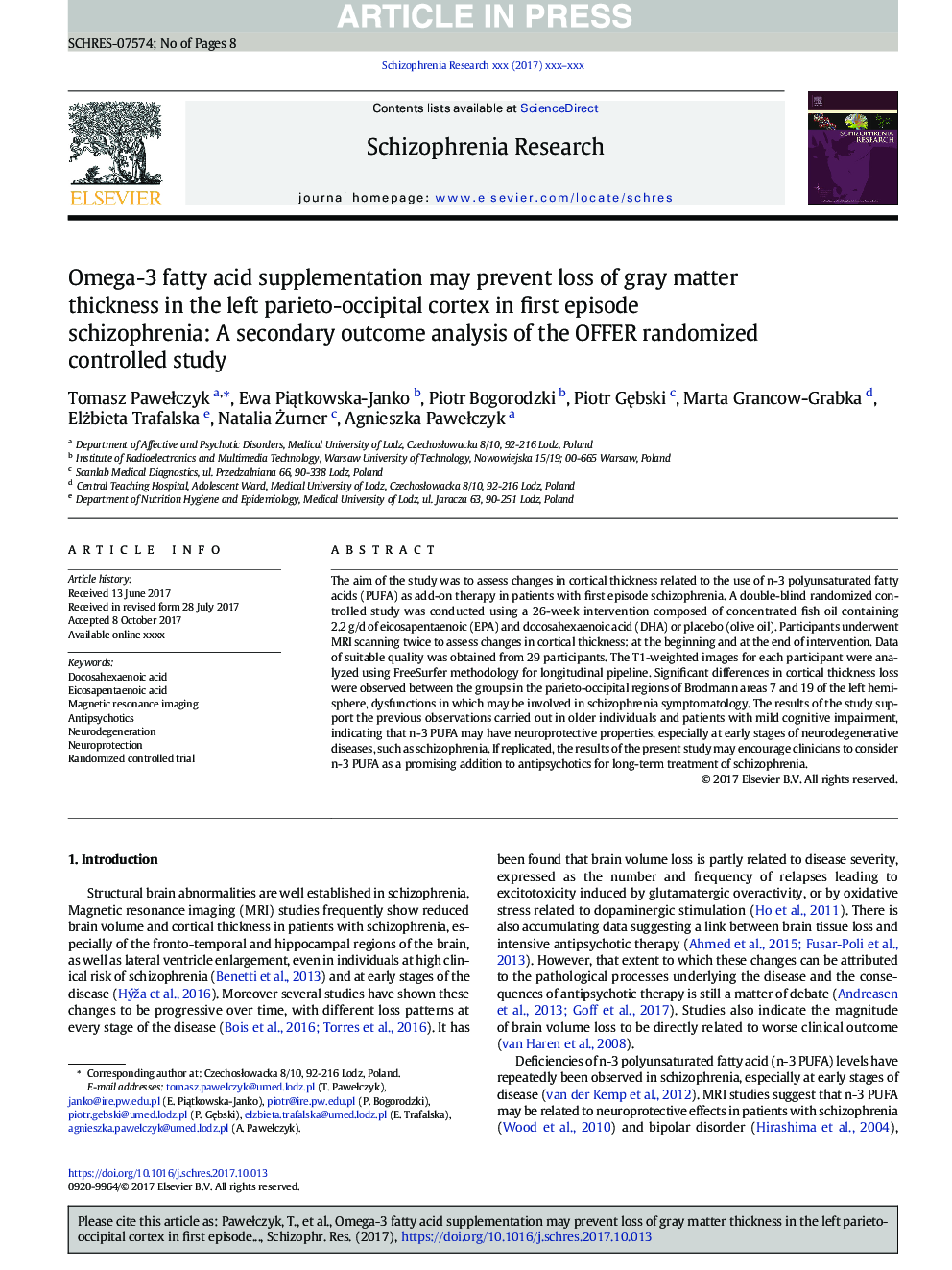| Article ID | Journal | Published Year | Pages | File Type |
|---|---|---|---|---|
| 6821255 | Schizophrenia Research | 2018 | 8 Pages |
Abstract
The aim of the study was to assess changes in cortical thickness related to the use of n-3 polyunsaturated fatty acids (PUFA) as add-on therapy in patients with first episode schizophrenia. A double-blind randomized controlled study was conducted using a 26-week intervention composed of concentrated fish oil containing 2.2Â g/d of eicosapentaenoic (EPA) and docosahexaenoic acid (DHA) or placebo (olive oil). Participants underwent MRI scanning twice to assess changes in cortical thickness: at the beginning and at the end of intervention. Data of suitable quality was obtained from 29 participants. The T1-weighted images for each participant were analyzed using FreeSurfer methodology for longitudinal pipeline. Significant differences in cortical thickness loss were observed between the groups in the parieto-occipital regions of Brodmann areas 7 and 19 of the left hemisphere, dysfunctions in which may be involved in schizophrenia symptomatology. The results of the study support the previous observations carried out in older individuals and patients with mild cognitive impairment, indicating that n-3 PUFA may have neuroprotective properties, especially at early stages of neurodegenerative diseases, such as schizophrenia. If replicated, the results of the present study may encourage clinicians to consider n-3 PUFA as a promising addition to antipsychotics for long-term treatment of schizophrenia.
Keywords
Related Topics
Life Sciences
Neuroscience
Behavioral Neuroscience
Authors
Tomasz PaweÅczyk, Ewa PiÄ
tkowska-Janko, Piotr Bogorodzki, Piotr GÄbski, Marta Grancow-Grabka, Elżbieta Trafalska, Natalia Å»urner, Agnieszka PaweÅczyk,
